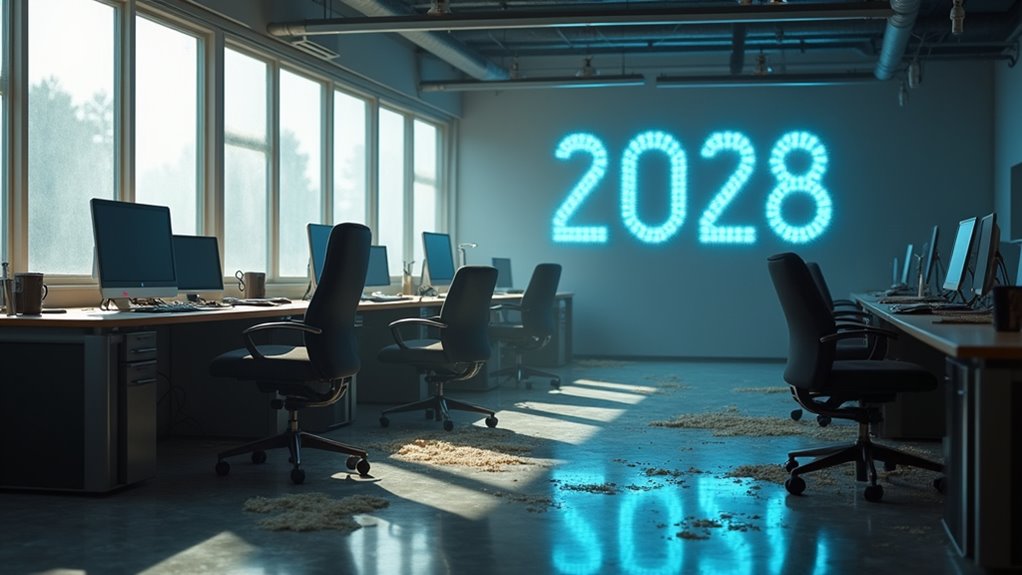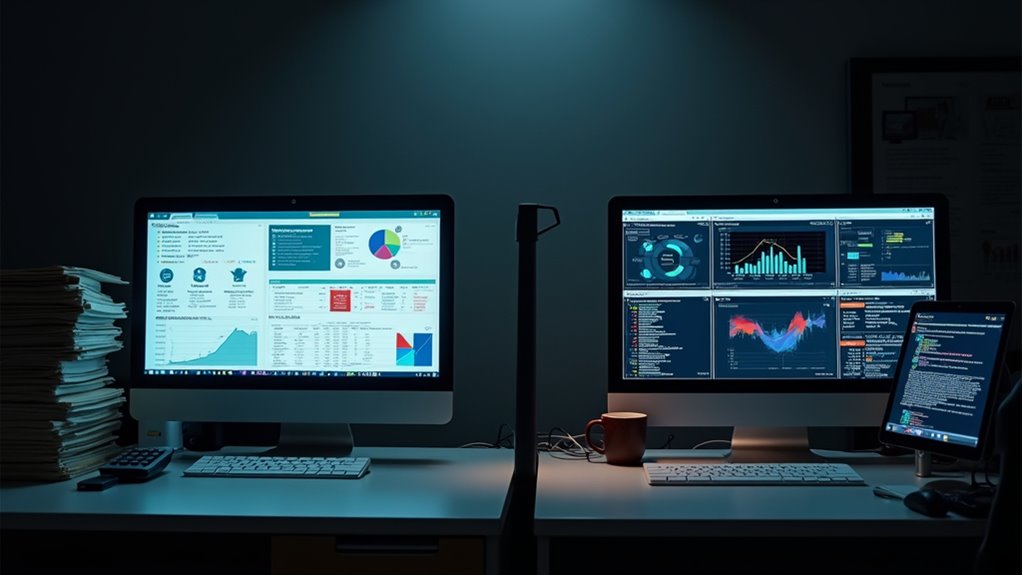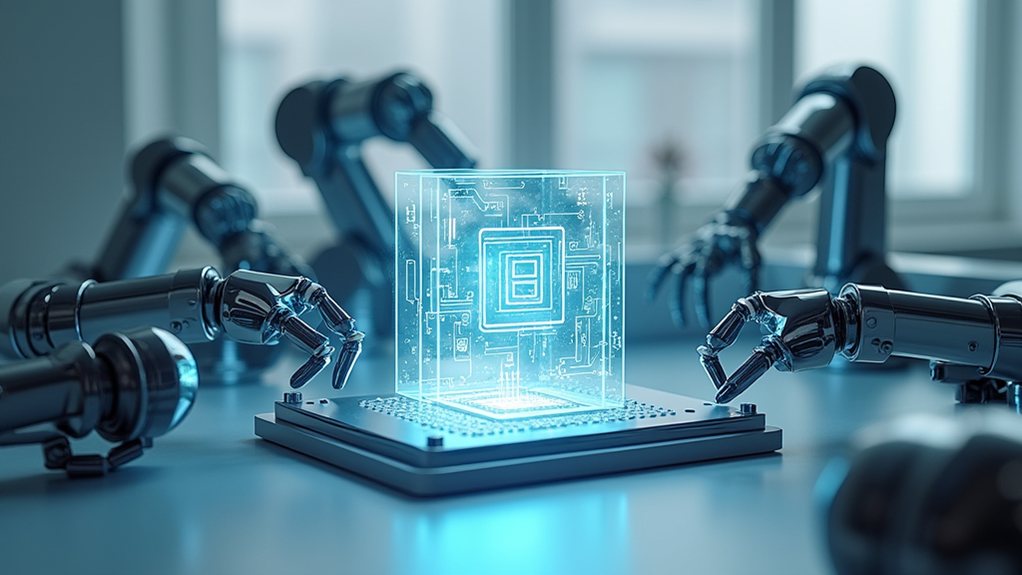The automation wave isn’t playing games—40% of employers are already planning workforce cuts, while 80% of workers face AI disrupting at least 10% of their daily tasks. From factory floors to corner stores, no industry gets a free pass. But here’s the plot twist: AI-related jobs are surging 25.2% year-over-year, and companies adopting AI see profit jumps up to 45%. The real question isn’t whether change is coming—it’s whether you’ll adapt or become tomorrow’s cautionary tale.
The catch? These golden opportunities require skills that didn’t exist when most of us were in school. It’s like musical chairs, except the music never stops and someone keeps adding more complex instruments.
40% of employers are already planning workforce reductions where automation makes sense, while quietly expanding operations in countries where labor costs pennies on the dollar.
The message is clear: adapt or become a cautionary tale.
Evolution doesn’t ask permission—neither does the job market. Adapt now or watch from the sidelines.
The automation wave isn’t coming—it’s already here, reshaping everything from factory floors to corner stores. While 80% of workers could see at least 10% of their daily tasks impacted by AI technology, the ripple effects extend far beyond individual roles. Companies that embrace AI solutions can experience profit increases of up to 45%, creating a powerful incentive for continued automation. Meanwhile, AI-related positions are experiencing explosive growth with a 25.2% year-over-year increase, creating new opportunities for those ready to pivot.
The question isn’t whether your job will change, but whether you’ll change with it.








